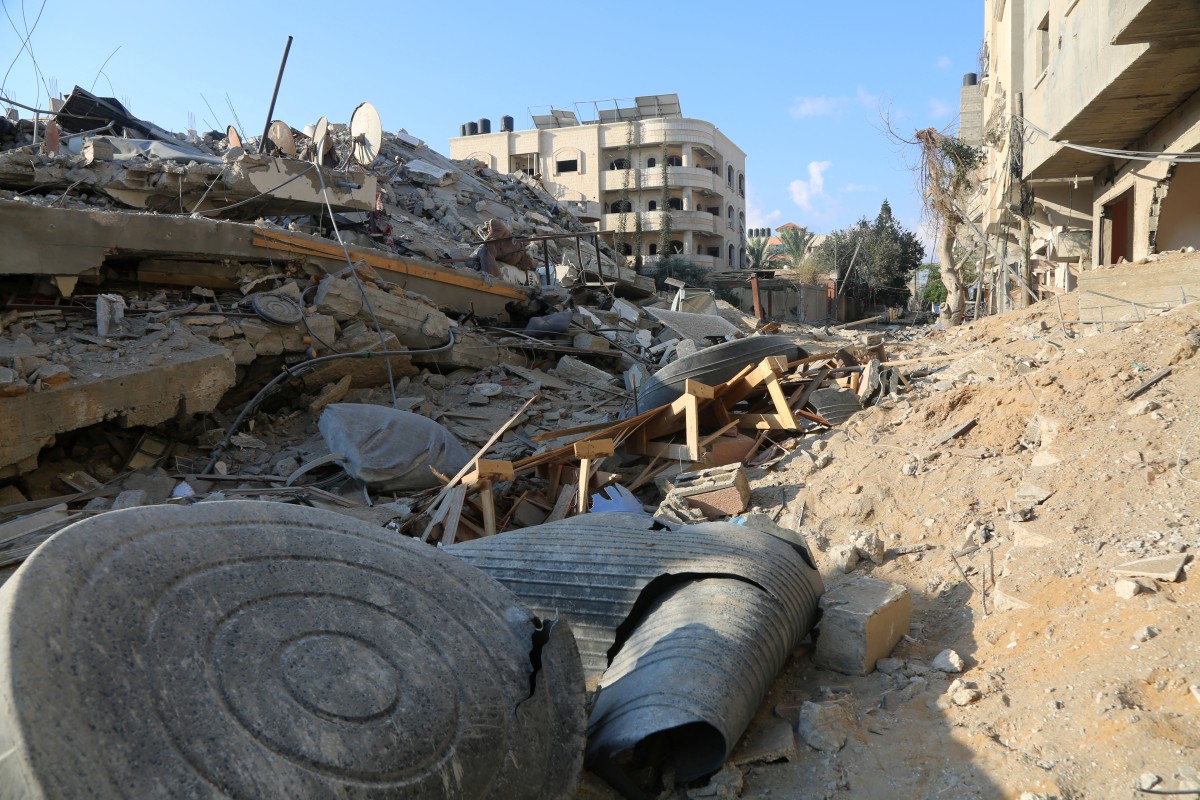Cairo, Egypt – The Gaza Strip has only “24 hours of water, electricity and fuel left”, the regional head of the United Nations’ World Health Organization told AFP on Monday, as pressure mounts for assistance to arrive.
If aid is not allowed into the besieged territory, doctors will have to “prepare death certificates for their patients,” WHO regional director for the eastern Mediterranean, Ahmed al-Mandhari, said in an interview with AFP.
Monday marked 10 days of relentless Israeli air strikes on targets in the Palestinian enclave, in retaliation for an October 7 attack by Gaza-based Hamas militants who killed 1,400 people, mostly civilians, in southern Israel.
Gaza is now barreling towards “a real catastrophe”, Mandhari said.
The Hamas-controlled health ministry in Gaza said around 2,750 people have been killed and 9,700 wounded while, according to the UN, one million have been displaced.
Power outages threaten to cripple life-support systems, from sea water desalination plants to food refrigeration and hospital incubators.
Even everyday functions — from going to the toilet, showering and washing clothes — are almost impossible, locals say.
With emergency responders overwhelmed, doctors working around the clock and a dire lack of space, “bodies cannot be properly taken care of”, Mandhari said.
Overcrowding has paralyzed hospitals, where “intensive care units, operating rooms, emergency services and other wings” are all on the brink of collapse, he said.
Israeli Energy Minister Israel Katz on Sunday said water supplies to southern Gaza had been switched back on, a week after Israel announced a “complete siege” cutting water, power and fuel supplies to the territory where it wants to crush Hamas.
Depriving civilians of goods essential for survival is banned under international law, the UN human rights chief has said.
Left to die
During the air and artillery bombardment, the WHO has recorded 111 medical facilities targeted, 12 health care workers killed and 60 ambulances bombed — in violation of both “international law and the principles of humanity”, Mandhari said.
A total of 22 hospitals in northern Gaza are treating more than 2,000 patients, including “some on ventilators, some who need regular dialysis, in addition to children, infants and women”.
The enclave’s hospitals have run out of clean water, while “fuel shortages threaten electricity supply,” he said.
As medical resources dry up, Mandhari said doctors — who know they cannot save everyone — are having to make impossible choices.
“They have to triage the patients who are coming in. They have no other choice. There are too many people, so some are left to die slow deaths.”
Aid must be allowed to enter the Gaza Strip within one day before the situation becomes completely unmanageable, Mandhari said.
Convoys of international aid are waiting just across the border with Egypt, but they have been allowed no closer than the Egyptian town of El Arish, 50 kilometers (31 miles) away from the Rafah border crossing — the only passage in and out of Gaza not controlled by Israel.
Cairo has refused to allow foreign nationals to exit without humanitarian aid coming in.
Egyptian Foreign Minister Sameh Shoukry accused Israel of blocking the aid, despite “repeated requests” from Cairo.
Under a joint Israeli-Egyptian blockade in place since Hamas took control of Gaza in 2007, Israel has a say in the passage of all goods and people coming in and out of the territory.
United States Secretary of State Antony Blinken returned to Israel on Monday after shuttling between Arab states, hoping to coordinate efforts against Hamas while finding ways to alleviate Gaza’s humanitarian crisis.
He announced in Cairo on Sunday that the US had appointed veteran former diplomat David Satterfield to work on aid to Gaza.
The UN’s humanitarian chief Martin Griffiths said he would be heading to the Middle East on Tuesday “to try to help in the negotiations” for aid access.
“We are in deep discussions with the Israelis, with the Egyptians and with others,” Griffiths said.

